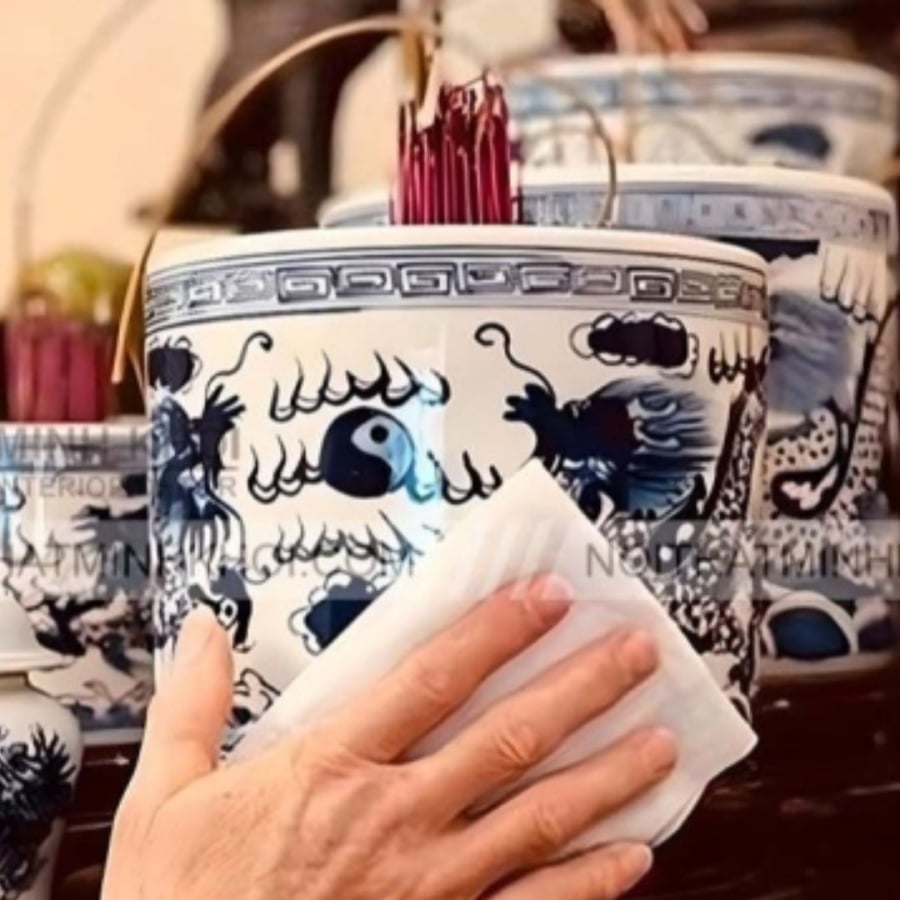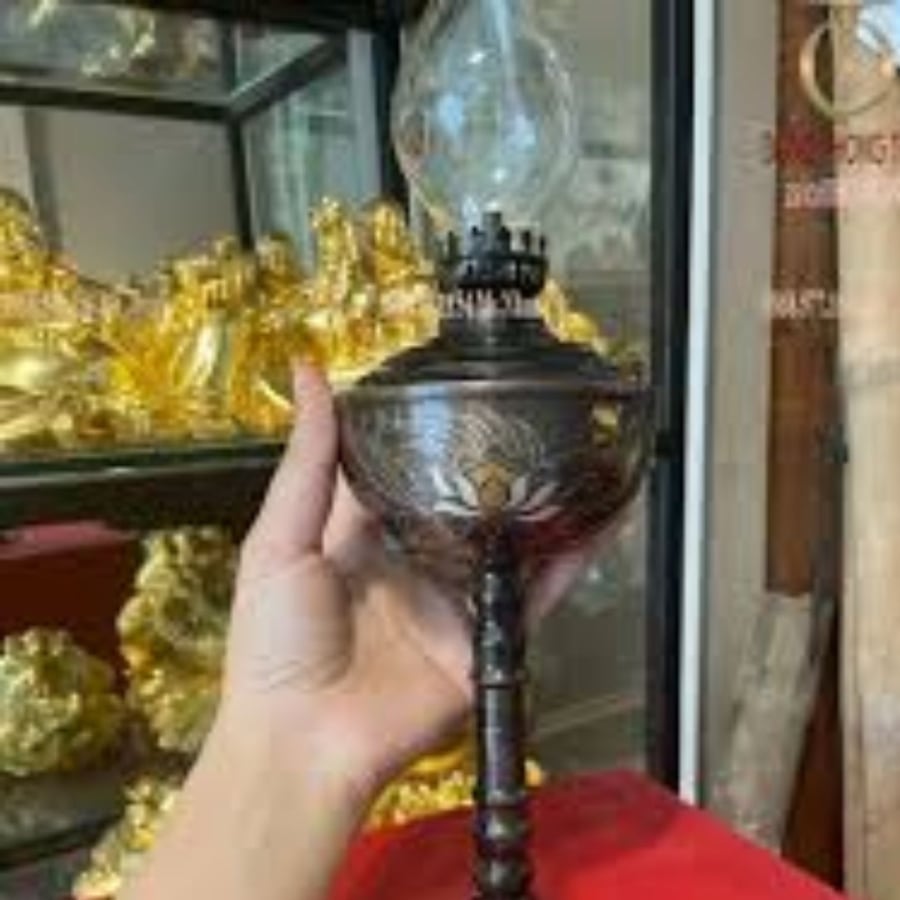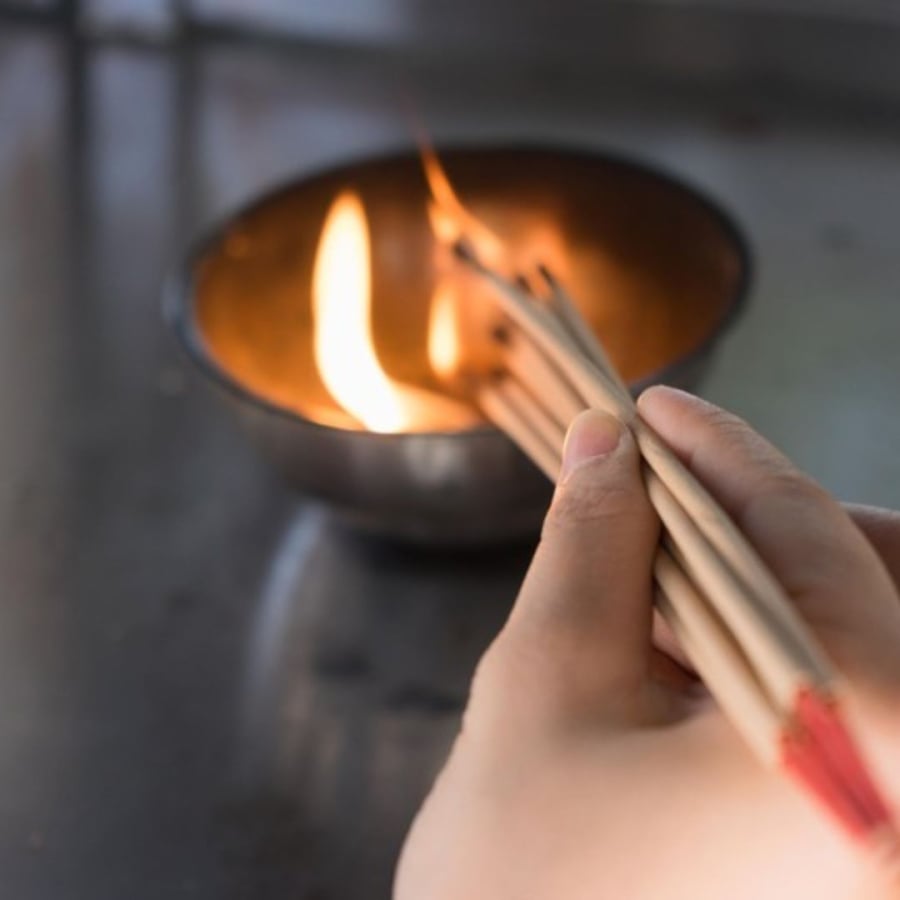In Vietnamese spiritual culture, the altar is not just a place to worship ancestors but also the ‘heart’ of the home – a space that connects the living and the dead, the present and the past. A properly set-up altar with the right rituals brings peace and prosperity to the family. However, according to feng shui experts and folk beliefs, if three important items are missing from the altar, the family may face obstacles and the descendants may struggle to thrive.
1. The altar must have a clean incense burner with intact joss sticks
The incense burner is the most sacred object on the altar, symbolizing the seat of ancestors and deities. However, many people neglect its maintenance, leaving it dusty, tilted, or missing joss sticks, with insufficient or damp ash.
Why is the incense burner important? A dirty incense burner obstructs the flow of positive energy and disrupts the balance of yin and yang energies.

Insufficient or damp ash in the incense burner can lead to a depletion of ‘spiritual energy’, causing disharmony and conflict within the family.
Not having enough joss sticks (3, 5, or 7, replugged after each use) creates a sense of emptiness and a disconnect with the spiritual realm.
Notes on cleaning the incense burner:
- Clean it periodically on the 14th day of the lunar month or the 23rd of the Chạp month.
- Use a clean cloth and five-spice water or ginger alcohol for cleaning.
- Do not rearrange the incense burner without consulting a feng shui master or an experienced person.
2. The altar should have a lamp or candle – a symbol of light and wisdom
In Eastern culture, light on the altar represents wisdom and the guidance of ancestors and deities. Many modern families, however, overlook the importance of the altar lamp, opting for cold LED lights or even no light at all.

Benefits of using an altar lamp:
- It creates a warm and sacred atmosphere for the altar.
- It attracts positive energy into the house and repels negative energy, especially at night.
- The light represents transparency and enlightenment, which is crucial for the education and career paths of descendants.
What type of lamp should be used? Traditional oil lamps or red candles are ideal. If using electric lamps, choose warm white light instead of stark white or flashing lights. Keep the lamp lit on the first and fifteenth days of the lunar month and during festivals.
3. The altar should have a vase of fresh flowers – a symbol of life and prosperity
While many families offer flowers only on special occasions like festivals or the first and fifteenth days of the lunar month, feng shui dictates that fresh flowers are a constant link between the mortal world and the spiritual realm, representing the most refined form of prayer.
What do fresh flowers symbolize? Flowers represent growth and prosperity, embodying wishes for wealth and peace.
- They purify the air and generate positive yang energy.
- Offering fresh flowers is a way to show respect and reverence to ancestors.
What type of flowers should be chosen? Opt for flowers with subtle colors and mild fragrances, such as chrysanthemums, lilies, alstroemerias, and Chinese hibiscus. Avoid artificial flowers, wilted flowers, or strongly scented flowers like lilies, which can be misinterpreted in the context of worship.
Offer flowers with sincerity, not just as a formality.
4. The altar demands reverence and sincerity during worship
The most important aspect of worship is the sincerity of the homeowner. If the altar is well-appointed but the worshipper’s mind is restless, disrespectful, or insincere, even the most lavish offerings will fail to attract wealth and good fortune.

Setting up an altar requires reverence and respect. When offering prayers, one must be focused and solemn. Standing before the altar, one should feel humble and eager to learn, with a sense of awe. Only then can the homeowner be truly virtuous, and only then will fortune smile upon them.
Thus, what matters most at the altar is the homeowner’s sincerity and solemnity, which foster a warm and inviting atmosphere. These qualities reflect the homeowner’s character and shape their path to prosperity.
- Position the altar in a clean, quiet space, avoiding locations directly across from the toilet or kitchen.
- Keep the altar tidy, refraining from placing personal items, money, or documents on it.
- Regularly clean the altar with a separate cloth and water, preventing dust and cobwebs from accumulating.
- Burn an odd number of incense sticks (1, 3, or 5) to avoid stuffiness and waste.
Reference for further exploration
































